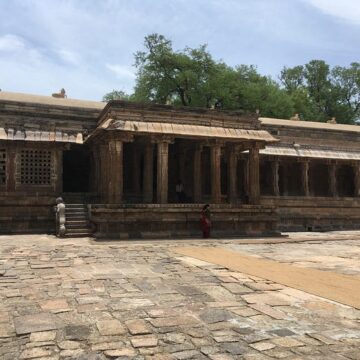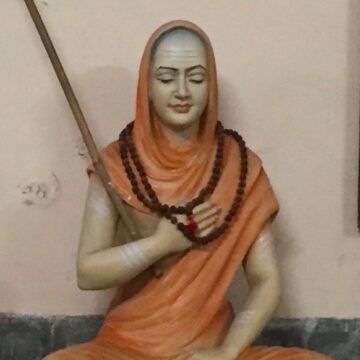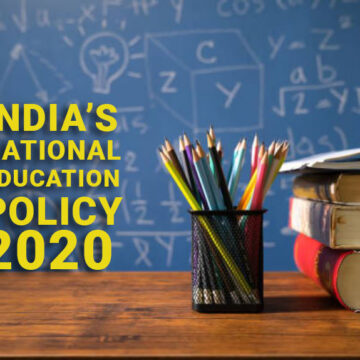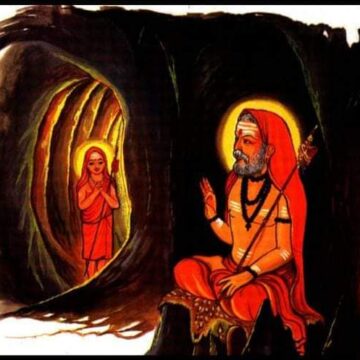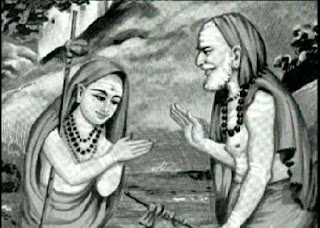Agrahāras have long been associated with the Hindu temple, popularly understood as residential housing schemes for brāhmaṇa families around the main temple. Popular narrative has sought to classify them as elitist brahminical dwellings designed to keep non-brāhmaṇas out. The notion, however, deviates from the reality - the primary right of the king over land is exercised by collecting a portion of produce as a ‘prime’ (agra) tax. When such tax revenue is gifted to a donee resulting in a ‘loss’ (hāra) to the state, it is called agrahāra. The lands gifted to brāhmaṇas are called brahmadéyas. These lands are typically agricultural lands that were already brought to revenue. Gifting of such lands has the effect of transferring the tax revenue therefrom to the donees. The brahmadéyas, are also not exclusively brahminical settlements.
Lakshmi Prasad J explores all this, and the importance and position of agrahāras in the ancient dharmik economy, in the first part of this series.
Category: COMMENTARY
Śaṅkara Charitam – a re-telling – Chapter -14 – Aja Bakṣiṭha Bāśyaṃ
Chapter 14 of Śaṅkara Charitam, titled Aja Bakṣiṭha Bāśyaṃ, takes us through the experience of Śaṅkara’s Guru Govinda Bhagavatpāda learning from Gauḍapāda, cursed to be in the form of Brahmarākṣasa. What happens after the lessons are over, where destiny takes each of them - Śaṅkara, his Guru Govinda Bhagavatpāda, and his Guru's Guru Gauḍapāda; will be revealed in this chapter.
Philosophical Systems Of India – A Primer – Part 5
The problems in Western philosophical traditions arise due to many factors, mainly the confusion of the relation between mind and matter; and making philosophy subservient to scientific dogma. Indian philosophy is not a dry intellectual exercise and holds a definite purpose to propel humans into the highest realms of bliss. Indian and Western philosophical traditions run on two parallel tracks consequently.
The Flawed and Dangerous New Educational Policy (NEP)
This article discusses the principal reasons that make the New Educational Policy (NEP) dangerous for Hindus and the traditional learning systems of Bharat. It does have some good points but the negatives far outweigh the positives to the extent that they may cause total destruction of Bharat’s ethos, culture, and values in a very short time.
Philosophical Systems Of India – A Primer – Part 4
In the fourth part of the 5-part series on Indian philosophical systems, Dr. Pingali Gopal discusses the prominent Advaitic view on the notions of the Self and the non-Self. We shall also see the notion of cause and effect in the material world and how the Self interacts with the material world. It is a promise of Indian Darshanas that proper knowledge confers liberation to the striving individual.
Philosophical Systems Of India – A Primer – Part 3
In the third part of the 5-part series on Indian philosophical systems, Dr. Pingali Gopal discusses the most important differing point of Indian philosophies from Western philosophy: Perception as a valid means of obtaining knowledge regarding the objects of the senses. In Western philosophy, perception is unreliable, and in the Indian tradition, perception is the eldest of the proofs needed to understand reality.
Unlike the western notions of an unknowable noumenon where the perceived world loses its intrinsic character, in Indian philosophy a conceived object cannot be unknowable; and if unknowable, it becomes inconceivable as well.
Śaṅkara Charitam – a re-telling – Chapter-13 – At the feet of the Guru
Chapter 13 of Śaṅkara Charitam takes us through Śaṅkara’s experience with his Guru, Govinda Bhagavatpāda, the completion of his education, and Guru's blessings and final teachings for Śaṅkara to take with him in the world and tackle the thick forest of ignorance enveloping the minds of the people.
Gauḍapāda as Brahmarākṣasa finds Govinda Bhagavatpāda acceptable as a disciple, and the teaching starts atop the pipal tree in which the Brahmarākṣasa resides..........
Philosophical Systems Of India – A Primer – Part 2
In the second part of the 5-part series on Indian philosophical systems, Dr. Pingali Gopal discusses the basics as well as the three categories of Indian philosophy, Advaita Vedanta, Vishishtadvaita Vedanta, and Dvaita Vedanta. He also deals with the root cause of the West's outlook on Indian philosophy and presents a rebuttal to some of the popular ideas of disharmony among schools of Indian philosophical thought that have been promulgated by the West.
Śaṅkara Charitam – a re-telling – Chapter-12 – Śivaḥ kevalo’ham
Chapter 12 of Śaṅkara Charitam takes us through Śaṅkara’s meeting with his Guru, and the Guru's acceptance of Śaṅkara as his disciple.
Govinda Bhagavatpāda asks the boy standing at the foot of the cave, inside which he meditated for centuries, to introduce himself and Śaṅkara calls himself - "Śivaḥ kevalo’ham".
The life of Gauḍapāda as a Brahmarākṣasa and his meeting with Govinda Bhagavatpāda is also mentioned in this chapter.
Philosophical Systems Of India – A Primer – Part 1
In the first part of a 5-part series, Dr Pingali Gopal introduces the ideas of the great Indian philosophical systems to the uninitiated.
Western Philosophers equate philosophy with only western thought which, puts philosophy between theology and science, and in turn, is either ignorant or dismissive of Indian thought.
Indian philosophy (or Darshanas) does not have an extreme reverence for science and because of the biases of the West, and resulatantly has disappeared from popular discourses; being termed ‘religions’ and hence lacking any validity in a ‘secular’ world.
Dr Gopal delves further into classification of Indian systems as orthodox and non-orthodox on the acceptance or rejection respectively of the Vedas as a reliable authority, and uncovers depths of Jainism, Buddhism, Samkhya, Charavaka and Nyaya-Vaisheshika philosophies for the uninitiated.
Further installments of this series will foray into the other orthodox and non-orthodox branches of Indian philosophical systems.

